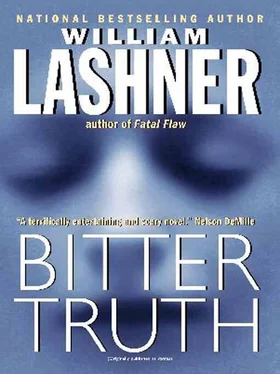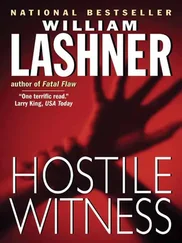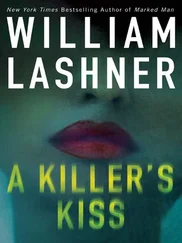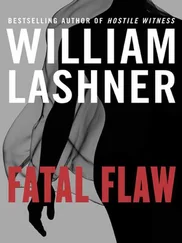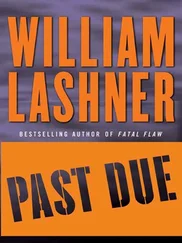What caused this fierce magnetic repellence was not any great puzzle. What had come between Caroline and me so strongly in that moment was what had never been between us and the letter was the most vivid confirmation of that yet. Christian Shaw’s letter to his child gave us something that was completely unexpected in this tale of deception and betrayal and murder and desertion and revenge, it gave us an unexpected burst of hope. The letter gave us hope because what Caroline Shaw had believed to be a fiction had been shown to be real, alive, transforming, redeeming. The hope was unexpected because who could have thought that in the middle of the cursed entwining of the Reddmans and the Pooles we would find, like a ruby in a mountain of manure, a transcendent and powerful love.
April 6, 1923
To My Child,
By the time you read this I will be dead. My death will have been a good thing for me and richly deserved, but doubtless hard on you. My father too died when I was young. He was a stern man, I’ve been told, a harsh man, prone to fits of violence. But as he died before I could remember anything about him, I imagine him as a fine and gentle man. I imagine him teaching me to ride. We would have hunted together. He would have given me his rifle to shoot. I imagine him finer and more gentle with me than the real man ever could have been. It is from this imagining that I feel the great gap in my life. I would not mourn him so keenly had he just once reached from his grave and slapped me on the face .
I have been the worst of scoundrels, the lowest of cowards. I take no pride in these facts, nor utter shame. It is simple truth and you should know the truth about your father. You may have learned that I was awarded a Distinguished Service Cross for my brief adventure in the army but do not be deceived as to any heroism on my part. The medal resides in the silt at the bottom of the pond beneath the Reddman estate, Veritas, where I threw it. It is home among the frog excrement and the rotting carcasses of fish. I joined the army to escape what I had made of my life. Do not think that war is glamorous or good, child, but I welcomed it as a friend for what it was, another way to die .
In May of 1918 I led a counterattack from a trench near a village called Cantigny. It was raining and fog was rising. The muffled sounds of war were unbearably close even before the Germans attacked. It was our first battle. The Germans advanced in a wave of ferocity and we beat them back with rapid fire. It was a magnificent and ugly thing to see. Young German men fell and cried out from the mud where they fell and we maintained our fire. Then the runner brought orders for the counterattack .
I wasted no time. I was first over the top. How many trailed my wake and died I cannot know. Shells with a soft sickly whistle dropped and fell gently to the ground. The fog rose thick and green. My eyes burned. My lungs boiled. The Germans we had shot writhed red in the sucking mud. They cried out from the vile green fog through which I charged. I charged not for honor or for Pershing or for France. I charged for death. The artillery, louder now, frightful, our own, rained down like a blessing from on high. We succeeded in running the Germans from their lines in Cantigny and I succeeded, too, in my personal mission. Scraps of metal from the great Allied guns, spinning through the air like locusts with shark’s teeth, sliced their welcome way into my body. I tried to lift my arms in gratitude but only one would rise and I fell face first into the mire .
Two stretcher bearers found me. I begged them to let me sleep but they ignored me and lifted me from the mud. The ambulance raced me to a mobile surgery unit where the doctors saved my life and took off what was left of my arm. Within half an hour they were cutting apart the next poor wretch. I was shipped off to Number 24 General Hospital, Étaples. It was in Étaples, on the northern coast of France, that I met Magee .
Number 24 General Hospital swarmed with wounded. Germans filled whole wards, so packed even the floors were crowded with their stretchers. Cries of “Schwester, Schwester,” rushed down the hallways. Other wards were stocked with our troops, the mangled, the maimed, the sufferers of trench fever, relatively cheery despite their feverish chills. Many in my unit hadn’t loused themselves, hoping a bite would send them to just such a ward. Because of the crowding, the sisters had cleared offices to hold patients and I was placed in one of those .
The small room held beds for three soldiers. My lungs were scarred from the gas. I could barely breathe. The stitches in my shoulder had grown infected and the nurses drained pus from the swelling each day. Still, I was the healthiest of the three roommates. The man to my right was swathed in bandages and never spoke my entire time in Number 24 General Hospital. He was fed by the sisters and moaned quietly in the late of night. Every once in a while the doctors would come in and cut off more of his body and bandage him up again. The man to my left had a gut wound that oozed red and then green and then, as he shouted through the night, burst and his insides slid out of him and with a quiet relief he died. They brought a stretcher for him and covered him with a flag. I struggled to stand as they carried him out, which was the custom. That evening, in the low light of dusk, they brought in someone new .
The orderlies propped him up on five pillows in the bed. They raised him by tape and webbing, which passed under his torso and was attached to the bedposts. The orderlies didn’t joke like they normally did as they worked. The patient smelled of rotting meat and rancid oil and the stench of him flooded through the room. He already seemed more dead than the soldier with the gut wound. Before they left, the orderlies placed a canvas screen between his bed and mine. For three days the sisters came and woke him to feed him soup or change his bedpans. The rest of the time he slept. The only sounds in the room were the soft moans of the soldier to my right and the creaking of the webbing beneath the new patient’s torso and my own shallow wheeze .
One morning, before the sisters came into our room, I heard a soft voice. “Hey, buddy, scratch my arm, will you? My right arm.” I sat up, unsure from which of my roommates the voice had come. “Scratch my arm, will you, buddy, it’s itching like hell.”
The voice, I realized, was coming from the new man. I tilted myself out of bed, struggled to my feet, and walked around the screen. When the soldier came into view I stopped and stared. For a moment I forgot to breathe. He was an absolute horror. The arm that he wanted me to scratch was gone, but that was not all. His head was facing the ceiling and I stared at the side of his face, but he had no profile. His nose had been shot off. The entire top part of his face, including his eyes, had been mauled. Fluid leaked clear from his bandages. Of his limbs, all that remained was his left leg. His swollen lips shook uncontrollably as he breathed. The smell of rot rose thick and noxious about him .
“ What about it? Scratch my arm, will you?”
“ The surgeons took off your arm,” I said. “Like they took off mine.”
“ Then how come I still feel it?” he asked .
“ I don’t know. I feel mine too.”
“ What else did they take off me, hey, buddy?” he asked .
“ Your other arm,” I said. “And your right leg.”
“ I knew my eyes were gone,” he said. “But I didn’t know the rest. Funny thing is the left leg is the only one I can’t feel. How’s the face? Do I still got my looks?”
Читать дальше
